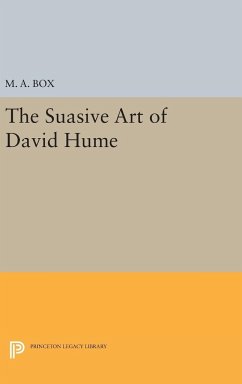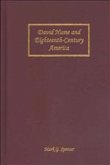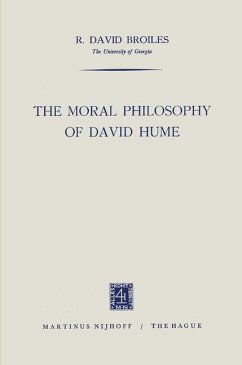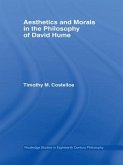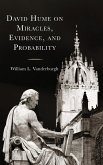Recognized in his day as a man of letters equaling Rousseau and Voltaire in France and rivaling Samuel Johnson, David Hume passed from favor in the Victorian age--his work, it seemed, did not pursue Truth but rather indulged in popularization. Although Hume is once more considered as one of the greatest British philosophers, scholars now tend to focus on his thought rather than his writing. To round out our understanding of Hume, M. A. Box in this book charts the interrelated development of Hume's literary ambitions, theories of style, and compositional practice from his Treatise in 1739 through the Enquiries. In so doing, Box makes the case for Hume's career-long concern with the presentational modes of reaching an audience for his philosophical writings. Hume reacted to the popular failure of his masterpiece, A Treatise of Human Nature, Box suggests, by self-consciously exploring strategies in his subsequent works for agreeably bringing his readership to participate in the act of philosophizing. Combining a sensitive grasp of the ways Restoration period and eighteenth-century writers conceived the relations between rhetoric and philosophy with sound readings of particular texts, Box shows how Hume's literary concerns went beyond matters of style to involve persona, structure, and doctrine. While this book helps explain long-standing ambiguities surrounding Hume, especially by pointing out the tension between his created persona and his own voice, it also serves as an excellent introduction to his philosophy. Originally published in 1990. The Princeton Legacy Library uses the latest print-on-demand technology to again make available previously out-of-print books from the distinguished backlist of Princeton University Press. These editions preserve the original texts of these important books while presenting them in durable paperback and hardcover editions. The goal of the Princeton Legacy Library is to vastly increase access to the rich scholarly heritage found in the thousands of books published by Princeton University Press since its founding in 1905.
Hinweis: Dieser Artikel kann nur an eine deutsche Lieferadresse ausgeliefert werden.
Hinweis: Dieser Artikel kann nur an eine deutsche Lieferadresse ausgeliefert werden.

